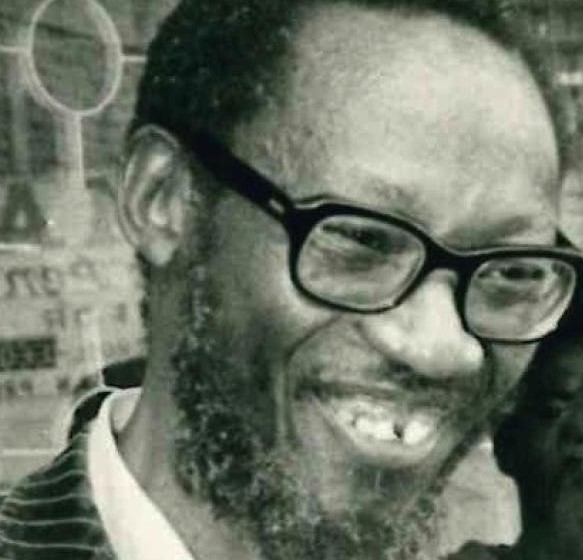His office resembled one in downtown Beirut in the aftermath of a terrorist bombing
His forays into television caused a stir with daring programs like Usiniharakishe-which was banned after two episodes -and Tushauriane on KBC, but which be remembered by Kenyans of a certain generation.
By Undercover Reporter
Even in his 80s, he walked almost every lunch hour from Upper hill to the Central Business District, his tall lithe frame sauntering as if being pushed from behind by some invisible hand. He hated lifts, but loved beef for breakfast. He only rested on Christmas Day-which he spent sleeping.
A health buff, he banned BAT, Coca-Cola and Pepsi, the biggest advertisers of the day from his publications-even when business was down. He shunned the trappings of material possessions, driving such an old car employees bought him a Subaru!
Calling a friend for a drink ordering one beer and two glasses as venerable editor the late George Mbugguss, renowned for his thirsty throat discovered to his horror.
Spotting his trademarked matted goatee and black horn-rimmed bifocals, Hilary Ng’weno-who died Wednesday after a long degenerative illness-anonymously strolled the streets of Nairobi as if he was not the first Kenyan to join the prestigious Harvard University in 1957.
The boy from Muthurwa Railway quarters in Nairobi was a beneficiary of the American Air-Lift, a scholarship program for bright students-and which irrevocably changed Kenya’s history. Though admitted to study medicine at Makerere University, Uganda, Ng’weno opted for Harvard where he studied Nuclear Physics- when Kenyans were using firewood to light up their roof thatched huts, cook, do homework. He went on to become a distinguished pioneering journalist, legendary editor, publisher, broadcaster and documentary filmmaker.
Finding no job for his Nuclear Physics degree from Harvard, Ng’weno veered into journalism
Her younger sister, Dr Bettina Ng’weno has a PhD in Cultural Anthropology from Johns Hopkins University, is currently an Associate Professor of African American and African studies at University of California, Davis.
But journalism was an accidental profession after finding no job for his Nuclear Physics degree. Still, he became Kenya’s most accomplished, peerless journalist and homespun media owner. Okay, you can say he was lucky, his college mate at Harvard was His Highness The Aga Khan, who pumped a million pounds into the Nation newspaper while still a student, but Ng’weno was gifted all the same.
Joe B Wanjui, the corporate titan and billionaire in real coin was Ng’weno’s fellow student at Mang’u High and also a beneficiary of the Air-Lift. Wanjui recalled that of the cohort from Mang’u and indeed the entire Air-Lift, Hilary Ng’weno was “the only one who could have succeeded in anything.”
Of his time at Daily Nation Ng’weno recalled ‘it was the worst time of my life. Most of the editors were British’
And to succeed he did, but not at Daily Nation where he resigned after only a year. Ng’weno hated interviews of any kind all his life, but he told German newspaper Siddeutsche Zeitung in 1979 that his time at Daily Nation “was the worst time of my life. Most of the editors were British and they thought this token Kenyan would ruin the paper. Many gave their notices the same day I arrived. I had many enemies. The problem was I would not and could not keep my mouth shut.”
Ng’weno repaired to Harvard as an International Affairs Fellow in between studying film production and television at Brandeis University as a Ford Fellow in 1968.
He returned and co-found Joe, a humour magazine with Terry Hirst in 1973. Hirst, father of Sheba Hirst (musician Eric Wainaina’s wife) was its illustrator. A reader survey in Joe was what inspired the idea of The Weekly Review, the Newsweek styled magazine in 1975 with a capital that can buy less than 10 beers today.
His family is a chip of the old block, the Ng’wenos are high achievers
Weekly Review had such prophetic grassroots pulse on Kenya’s politics it was studied locally and abroad, but questioning the powers that be saw shrinking revenues from the government in what was then a Single-Party state “and Ng’weno was constantly worried about money,” recalled Sarah Elderkin, the secretary who rose to a formidable media manager and shareholder from a chance meeting with Ng’weno’s wife in the school where their daughter’s attended.
Besides a magazine, Ng’weno owned the Nairobi Times, a newspaper that shaped the careers of among others; Roy Gachuhi, arguably the finest sports writer of his generation. Financial headaches saw him offload Nairobi Times to the ruling party Kanu who renamed it Kenya Times in 1983.
His television documentaries are a testament to the staying power of his creativity
A fitness buff, Ng’weno always took the stair to his fifth floor office at Pioneer House and editorial meetings to the fourth floor Kampus Towers on the other end of Moi Avenue were also done on foot.
The aforementioned magazines were published under Ng’weno’s own Stellascope Publishing-which Kanu also bought. Actually, he went on to write a novel, The Men From Pretoria and With a Light Touch, his collection of newspaper articles and The Day Kenyatta Died.
Ng’weno was in the same cohort as Samuel Ayodo-the first Luo to study abroad
Having studied television, it was with an easy transition that Ng’weno opened Stellavision (STV) which was given a private license alongside KTN in the 1990s. But suppliers went under and he later sold it to TV Africa Holdings-who later morphed into K24. He worked as an administrator at the Kenya Revenue Authority after The Weekly Review began experiencing dwindling advertising and reader revenue after it went to bed with Kanu. It folded in May 1999 after a 24 year run and Nation Media later bought the title for undisclosed amount.
His family is a chip of the old block, the Ng’wenos are high achievers – with his two daughters a shining lights in technology and academia. Hillary Boniface Ng’weno, the guka of Kenyan journalism, died at 83.

